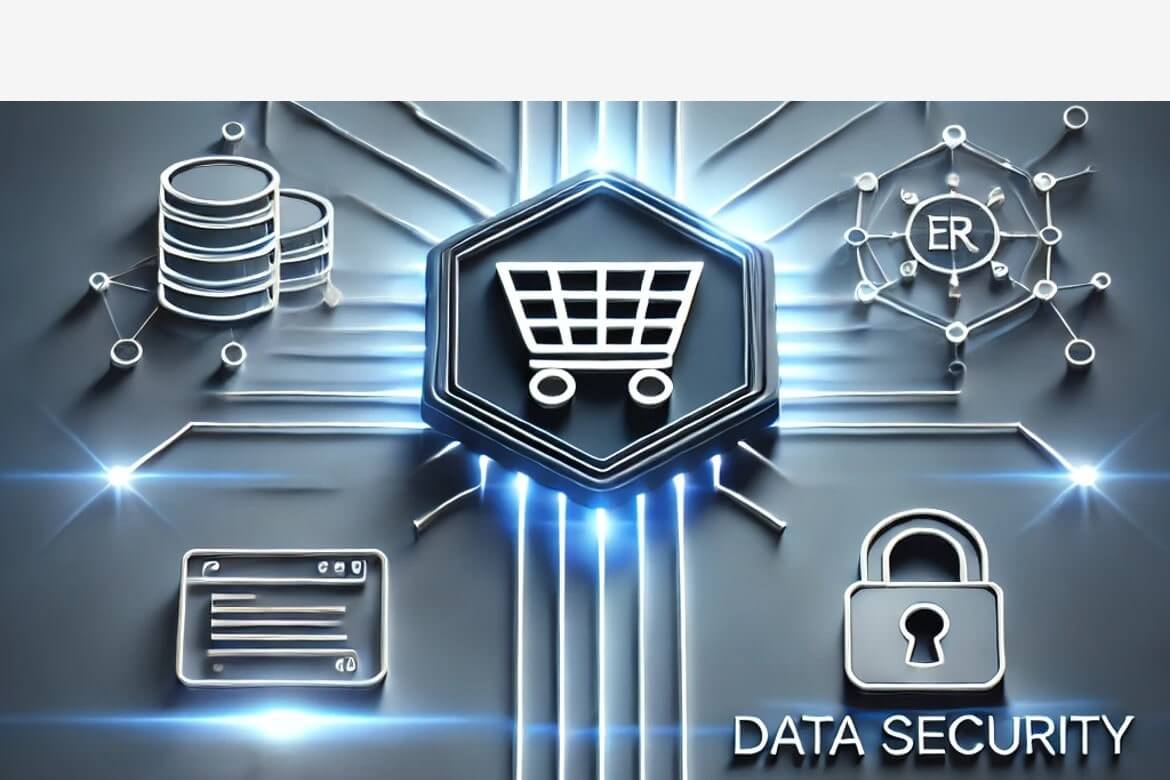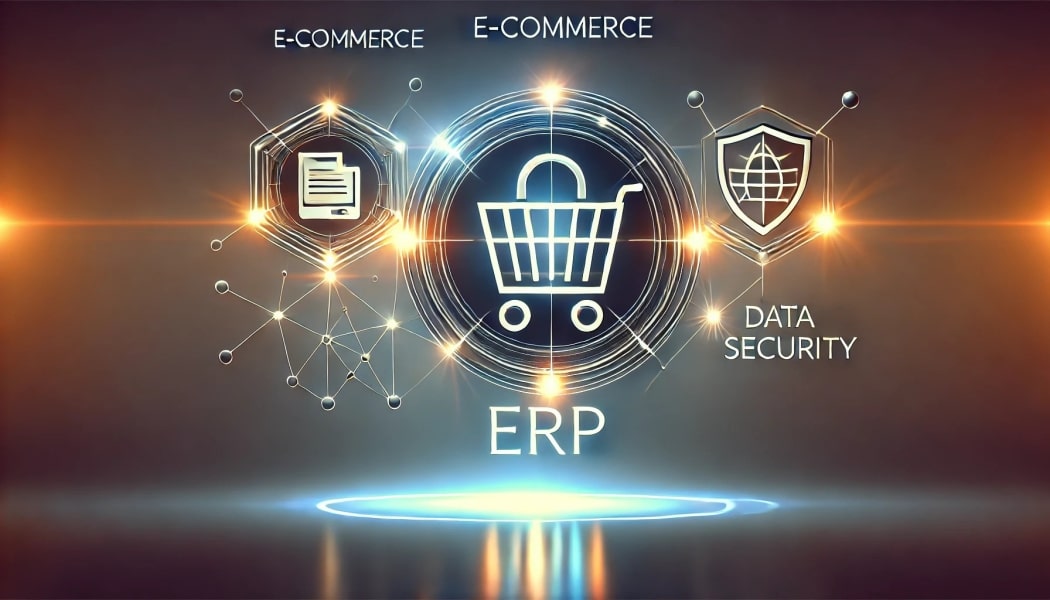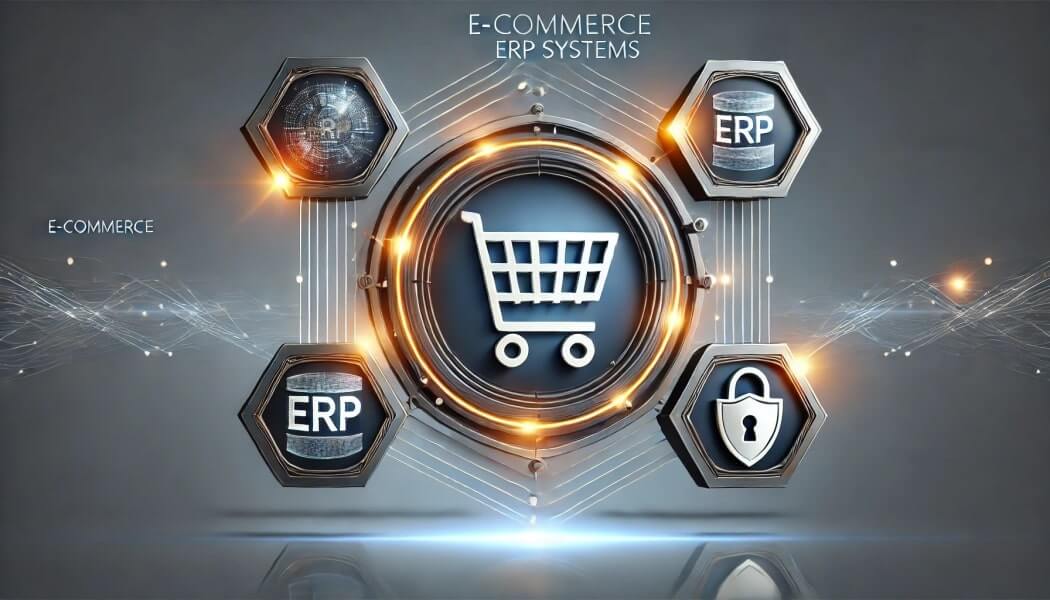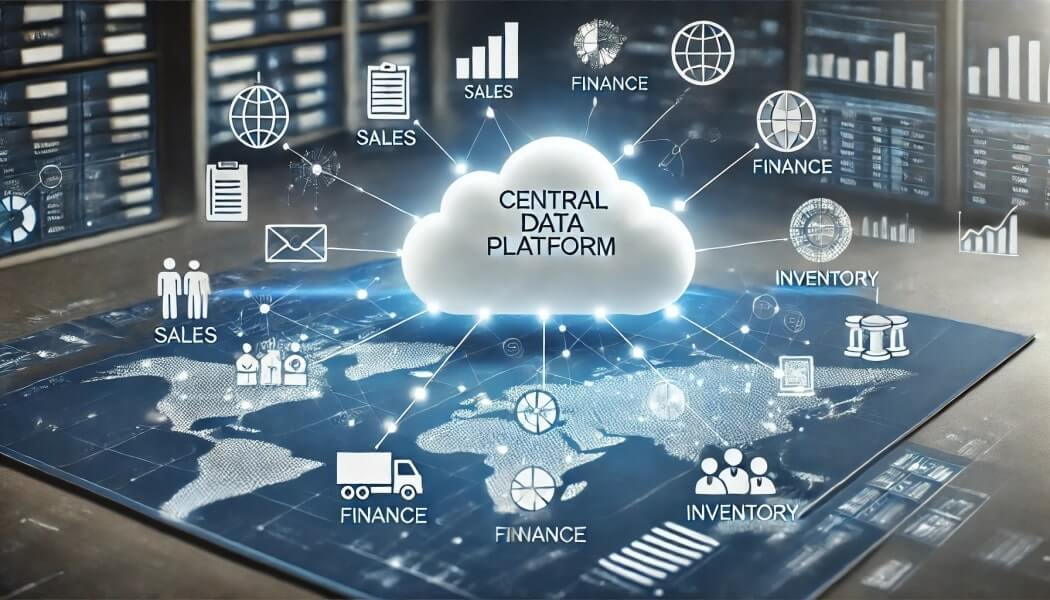Data sovereignty in e-commerce: Why a central ERP system is crucial for data protection
Written by
Editorial TeamPublished on
In today’s digital age, safeguarding customer data is not just a technical challenge but a vital element of trust and compliance for e-commerce businesses. Discover how data sovereignty and centralized ERP systems can help protect sensitive information, ensure regulatory adherence, and foster lasting customer loyalty. (Ad)

Commercial collaboration
Author: Inga Endrikat, CMO, S+S SoftwarePartner GmbH
Introduction
In today’s digital age, data is often referred to as the “new oil”—an invaluable resource that drives business growth and innovation. For e-commerce businesses, managing customer data effectively is not just a technical challenge but a critical aspect of maintaining trust, staying competitive, and meeting legal requirements. With customers sharing sensitive information such as personal details and payment data, the responsibility to safeguard this information has never been greater.
At the same time, businesses are grappling with increasing data volumes and complex regulatory requirements like the General Data Protection Regulation (GDPR). Non-compliance can result in significant financial penalties, reputational damage, and a loss of customer trust—consequences that no business can afford in today’s competitive e-commerce landscape.
This article explores the concept of data sovereignty, why it is particularly important for e-commerce businesses, and how centralised ERP (Enterprise Resource Planning) systems can play a vital role in ensuring data protection and compliance. By providing a unified platform for managing data, ERP systems offer businesses the tools they need to maintain control over their data, mitigate risks, and build long-lasting trust with their customers.
What does data sovereignty mean in e-commerce?
Defining data sovereignty
Data sovereignty refers to the concept that data is subject to the laws and governance structures of the nation in which it is collected or stored. In practice, this means businesses must ensure compliance with regional regulations, such as the GDPR in the European Union, while also safeguarding the ownership and control of their data assets.
For e-commerce businesses, data sovereignty extends beyond legal compliance. It involves maintaining control over customer data, ensuring secure storage and handling, and preventing unauthorised access or misuse. This not only satisfies regulatory obligations but also reassures customers that their information is in safe hands.
Why data sovereignty matters
In the e-commerce industry, data sovereignty plays a pivotal role for both businesses and customers. Here’s why:
1. Building customer trust
Customers are increasingly aware of how their personal data is used and stored. A commitment to data sovereignty signals to customers that their privacy is respected, fostering trust and encouraging repeat business. Conversely, data breaches or mishandling can lead to reputational damage and loss of customer loyalty.
2. Enhancing competitiveness
In a saturated market, businesses that demonstrate robust data governance can position themselves as trustworthy and reliable. Compliance with data sovereignty laws not only reduces legal risks but also becomes a competitive differentiator, particularly when targeting privacy-conscious markets like the EU.
3. Mitigating risks
A lack of data sovereignty exposes businesses to various risks:
- Legal penalties: Non-compliance with regulations like GDPR can result in fines of up to €20 million or 4% of global turnover.
- Operational disruptions: Breaches or mismanagement of data can lead to system downtime, eroding customer confidence.
- Financial losses: Beyond penalties, breaches often result in costly remediation efforts and lost business opportunities.
The risks of inadequate data sovereignty
Without proper data sovereignty measures, e-commerce businesses face significant vulnerabilities:
- Data breaches: Distributed and poorly managed data storage increases the risk of unauthorised access.
- Inconsistent data handling: A lack of standardisation can lead to errors and non-compliance with local regulations.
- Customer attrition: Privacy-conscious customers may abandon platforms perceived as insecure or non-compliant.
By addressing these risks, data sovereignty becomes a foundation for sustainable growth and long-term success in the e-commerce space. Central to achieving this is the adoption of technologies like ERP systems, which streamline data management and compliance—a topic explored in detail in the following sections.

Data protection requirements in e-commerce
Overview of legal frameworks
E-commerce businesses operate in an environment where data protection laws are becoming increasingly stringent. Key regulations that govern data protection include:
1. General Data Protection Regulation (GDPR): Enforced across the European Union, the GDPR mandates that businesses handle personal data responsibly, with principles like data minimisation, lawful processing, and transparency. Non-compliance can result in fines of up to €20 million or 4% of global annual revenue.
2. E-Privacy regulation: Complementing the GDPR, this regulation focuses on electronic communications, including cookie use, online tracking, and direct marketing. Though not yet finalised, it is expected to impose stricter rules on digital data usage.
3. Other regional and national regulations: E-commerce businesses must also comply with country-specific data protection laws, such as the California Consumer Privacy Act (CCPA) in the United States or China’s Personal Information Protection Law (PIPL).
Common data protection challenges in e-commerce
1. Handling payment and personal data:
E-commerce platforms collect sensitive customer information, such as names, addresses, credit card details, and browsing behaviour. Protecting this data while ensuring its availability for business operations is a delicate balance.
2. Tracking and cookies:
Many e-commerce businesses rely on cookies and tracking technologies for personalisation and analytics. These tools often involve the collection of personal data, which must align with GDPR and other regulations, including obtaining explicit user consent.
3. Third-party integrations:
Payment gateways, logistics providers, and marketing platforms are often essential for e-commerce operations. However, sharing customer data with third parties increases the risk of breaches and adds layers of compliance complexity.
The cost of non-compliance
Failing to adhere to data protection requirements can have severe consequences:
- Financial penalties: High-profile fines for GDPR violations serve as a stark warning. For example, Amazon was fined €746 million in 2021 for GDPR infringements.
- Reputational damage: News of data breaches or non-compliance can erode customer trust, leading to lost sales and market share.
- Operational disruptions: Regulatory scrutiny or breach responses can divert resources and delay business operations.
Proactive compliance as a competitive advantage
While data protection regulations impose challenges, they also present an opportunity for businesses to differentiate themselves. Proactively addressing these requirements can:
- Strengthen customer trust and loyalty.
- Streamline operations by fostering disciplined data management.
- Position the company as a responsible and trustworthy market leader.
By understanding the complexities of data protection and implementing robust compliance measures, e-commerce businesses can not only mitigate risks but also leverage data protection as a competitive advantage. This sets the stage for exploring how centralised ERP systems can simplify and optimise compliance—a focus of the next section.

The role of a centralised ERP system
What is a centralised ERP system?
An Enterprise Resource Planning (ERP) system is a software solution designed to manage and integrate key business processes into a unified platform. For e-commerce businesses, a centralised ERP system consolidates data from various sources—such as customer interactions, inventory, and financial transactions—into a single database. This integration not only streamlines operations but also provides greater oversight and control over data management.
In the context of data protection, a centralised ERP system acts as the backbone for ensuring data sovereignty. By managing all data in one location, businesses can enforce consistent policies, monitor data usage, and reduce the risk of errors or breaches that often occur in decentralised systems.
Key benefits of a centralised ERP system
1. Consistent data management
- A centralised system eliminates data silos, ensuring that all departments have access to accurate and up-to-date information.
- Consistency in data handling simplifies compliance with regulations like GDPR, which require clear documentation of data flows and processing activities.
2. Improved visibility and control
- ERP systems provide businesses with a bird’s-eye view of data across the organisation, making it easier to track data access and usage.
- Enhanced visibility ensures that businesses can identify and mitigate potential vulnerabilities, such as unauthorised access or data misuse.
3. Seamless integration
- ERP systems integrate with other tools and platforms, such as Customer Relationship Management (CRM) systems, marketing software, and payment gateways.
- This integration ensures that data flows are consistent and compliant with privacy regulations, even when working with third-party services.
4. Strategic operational benefits
- By breaking down silos, ERP systems improve collaboration across departments, enhancing operational efficiency.
- Centralised systems also support scalability, making it easier to handle business growth and increasing data complexity.
Addressing future needs
As e-commerce businesses grow, the complexity of data management increases. A centralised ERP system provides the flexibility needed to adapt to:
- Expanding regulatory requirements, such as new data protection laws.
- Growing volumes of customer and transactional data.
- Integration with emerging technologies, including AI and IoT, to remain competitive.
By centralising data management and streamlining operations, ERP systems establish a strong foundation for growth and compliance, reducing risks and enhancing long-term competitiveness. The next section will detail specific compliance-oriented functionalities of ERP systems and their role in mitigating legal risks.
How an ERP system supports compliance with data protection regulations
Key ERP features for ensuring data protection
1. Access controls and user permissions
- ERP systems enable granular access control, ensuring that only authorised personnel can view or modify sensitive data.
- User roles can be customised to align with organisational needs, reducing the risk of internal data misuse or unauthorised access.
2. Audit trails and activity logging
- Comprehensive audit trails provide a detailed record of data-related activities, such as who accessed, modified, or shared data.
- These logs not only enhance transparency but are also invaluable for regulatory audits and internal investigations.
3. Encryption and secure data storage
- ERP systems use encryption protocols to protect data both in transit and at rest.
- Secure storage mechanisms ensure that sensitive data, such as customer payment information, is shielded from potential breaches.
4. Automated compliance features
- Automated workflows simplify complex tasks, such as processing “right to be forgotten” requests under GDPR.
- ERP systems can enforce data retention policies, ensuring that information is stored only as long as necessary and then securely deleted.
Simplifying regulatory compliance with ERP systems
- GDPR and beyond
- The GDPR requires businesses to demonstrate accountability in handling personal data, including maintaining records of processing activities.
- ERP systems centralise this documentation, making it easier to generate reports, respond to data subject requests, and ensure ongoing compliance.
- Third-Party data management
- E-commerce businesses often work with external providers (e.g., payment gateways, marketing platforms), which can complicate data protection efforts.
- ERP systems track data sharing with third parties and ensure compliance with data minimisation principles, reducing the risk of breaches.
- Cross-border compliance
- For global e-commerce businesses, complying with multiple data protection laws (e.g., GDPR, CCPA, PIPL) can be overwhelming.
- ERP systems support multi-regional compliance by integrating localisation features, such as region-specific data storage and legal templates.
Risk mitigation through centralisation
1. Minimising human errors
- By automating data management tasks, ERP systems reduce the likelihood of human errors that could lead to non-compliance or breaches.
2. Real-time monitoring
- ERP systems provide real-time insights into data activities, enabling businesses to detect and address anomalies promptly.
3. Enhanced incident response
- With detailed activity logs and audit trails, ERP systems facilitate faster and more effective responses to data breaches or regulatory inquiries.
The long-term value of compliance
Beyond avoiding fines and legal issues, ERP systems offer long-term value by building customer trust and operational efficiency. By demonstrating a commitment to data protection, businesses can differentiate themselves in competitive markets and foster customer loyalty.
As data regulations become more stringent and customer expectations for privacy rise, adopting an ERP system is not just a compliance measure—it is a strategic investment in the future of e-commerce.

Risks without a centralised ERP system
Fragmented data management
When businesses lack a centralised ERP system, data often resides in multiple, disconnected systems. This fragmentation leads to:
1. Inconsistencies in data handling
- Without a unified system, data duplication and inconsistencies are common, making it harder to ensure accuracy and compliance.
- Errors in customer records or transactional data can undermine trust and complicate regulatory reporting.
2. Increased vulnerability to breaches
- Decentralised systems make it difficult to monitor and secure all data access points, increasing the risk of breaches.
- Sensitive information may be exposed due to weak links in fragmented systems.
3. Compliance challenges
- Meeting regulatory requirements like GDPR becomes more complex when data is stored across multiple systems, each with its own protocols.
- Responding to data subject requests, such as access or deletion requests, is significantly more time-consuming and error-prone without centralisation.
Operational inefficiencies
A lack of centralisation often leads to:
1. Manual processes
- Without automation, staff must manually coordinate data across systems, wasting valuable time and resources.
- This increases the likelihood of human errors and delays in meeting regulatory deadlines.
2. Delayed incident response
- Identifying and addressing data breaches or irregularities is much slower when data resides in silos.
- This delay can exacerbate the damage caused by breaches and lead to harsher penalties.
Real-world consequences
1. Financial penalties
- Businesses operating with fragmented systems have faced steep fines due to non-compliance. For example, companies with poor data management have struggled to prove GDPR compliance during audits, resulting in penalties.
2. Reputational damage
- Customers are quick to lose trust in businesses that fail to protect their data. Publicised breaches or compliance failures can lead to customer attrition and revenue loss.
3. Missed Business Opportunities
- Inefficient data management can hinder decision-making and prevent businesses from capitalising on growth opportunities.
Conclusion
The absence of a centralised ERP system not only exposes e-commerce businesses to compliance risks but also undermines operational efficiency and customer trust. Investing in a centralised ERP system is no longer optional—it is essential for navigating the complex regulatory landscape, safeguarding data, and ensuring long-term success.

Future trends and challenges
Emerging regulatory changes
The global regulatory landscape is constantly evolving, with new laws and amendments being introduced to address technological advancements and growing concerns about data privacy. Businesses must prepare for:
1. Stricter data protection laws
- Countries are implementing more robust privacy regulations, such as California’s CPRA (expanding on CCPA) and China’s PIPL.
- Compliance with multiple regional laws will require ERP systems that can adapt to varying requirements.
2. Increased focus on AI and automation
- As AI becomes integral to business operations, ensuring ethical data usage and compliance with emerging AI-specific regulations will be critical.
- ERP systems must integrate AI governance features to support compliance and transparency.
Technological innovations
Advancements in technology will continue to shape e-commerce and data management:
1. Cloud-based solutions
- Cloud ERP systems are gaining traction for their scalability and flexibility.
- Businesses must address concerns about data residency and sovereignty when adopting cloud solutions.
2. IoT integration
- Internet of Things (IoT) devices will generate vast amounts of data, requiring ERP systems to manage and secure these new data streams effectively.
Customer expectations
Consumers are becoming more privacy-conscious and expect businesses to be transparent about data usage. Meeting these expectations involves:
1. Data transparency
- Providing clear, accessible information about how customer data is collected, stored, and used.
- ERP systems can facilitate this by offering tools for automated consent management and reporting.
2. Enhanced data security
- Ensuring robust security measures to protect customer data from breaches or misuse.
- ERP systems must stay updated with the latest security standards to meet these expectations.
Preparing for the future
E-commerce businesses must invest in ERP systems that are adaptable, scalable, and equipped to handle emerging challenges. By staying ahead of trends and proactively addressing regulatory and technological shifts, businesses can:
- Maintain compliance and reduce risks.
- Build customer trust and loyalty.
- Leverage innovations to drive growth and competitiveness.
Conclusion and recommendations
Key takeaways
This discussion has highlighted the critical role of centralised ERP systems in achieving data sovereignty and regulatory compliance in e-commerce. Key points include:
1. The importance of centralisation
- A centralised ERP system provides consistency, control, and visibility over data, essential for compliance and operational efficiency.
2. Compliance-driven features
- ERP functionalities such as access controls, audit trails, encryption, and automated workflows simplify adherence to complex data protection regulations like GDPR.
3. Risks without centralisation
- Fragmented data systems lead to inefficiencies, higher compliance risks, and greater vulnerability to breaches, ultimately affecting trust and competitiveness.
4. Adapting to future trends
- E-commerce businesses must prepare for evolving regulatory landscapes, technological advancements, and rising customer expectations.
Actionable recommendations
To leverage the benefits of ERP systems and ensure long-term success, businesses should:
1. Invest in a robust ERP system
- Choose an ERP system with proven compliance capabilities and scalability to adapt to growth and future challenges.
2. Integrate data protection into strategy
- Treat data protection as a strategic priority by aligning ERP functionalities with regulatory and business requirements.
3. Train staff and foster awareness
- Provide comprehensive training on data protection practices and ERP usage to minimise human errors.
4. Continuously monitor and update systems
- Regularly audit ERP systems for compliance and implement updates to stay ahead of technological and regulatory changes.
Final thoughts
Data sovereignty is no longer optional—it is a necessity in the competitive and regulated world of e-commerce. By adopting a centralised ERP system, businesses can streamline operations, build customer trust, and ensure compliance with ease. This investment is not just about mitigating risks; it is a strategic move towards sustainable growth and innovation in an increasingly data-driven market.
About S+S SoftwarePartner GmbH
Digitalization since 1971 | Cloud ERP, business management & more
Financial accounting, asset management or cloud ERP: they offer powerful applications for all areas of your company and help you to find and implement the right software solutions for you. Their solutions can be used across all industries and are flexibly scalable. They also offer special software, e.g. for logistics service providers or branch operations, and individual customizations for their systems. Their website: https://www.softwarepartner.net/
Sources:
Official European Union GDPR website (europa.eu)
Privacy blogs and news platforms i.e. IAPP and Data Protection Notes
Information about ERP systems and their functionality
IT blogs and providers i.e. SAP, Oracle, or Microsoft Dynamics
Publications and whitepapers by IT consulting firms i.e. Gartner or Forrester
Tech articles ie. TechTarget and ZDNet
Reports from security companies i.e. Palo Alto Networks and Imperva
Legal platforms like Lexology and national data protection authorities
***


